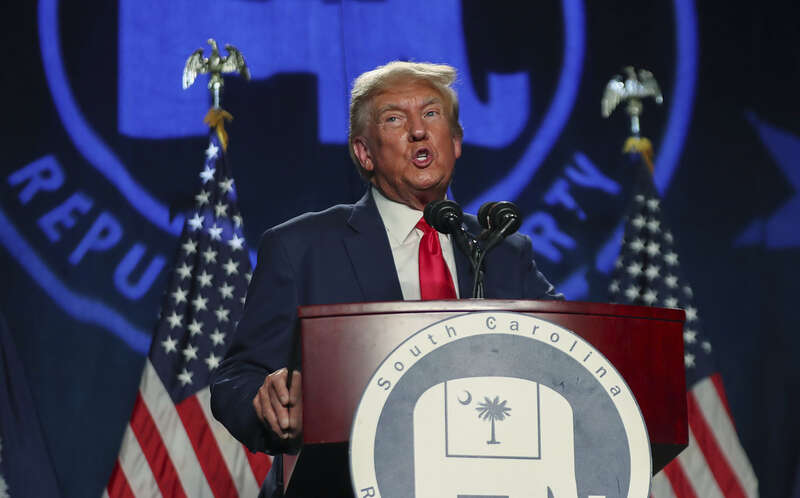
With Trump's possible return to the presidency, the world's eyes are on the early actions he will take. The Trump 2.0 era is coming, which will not only bring about the continuation and adjustment of policies, but also may trigger a series of unforeseen changes. The following is a preliminary analysis of several aspects of his possible actions:
First, prioritize personal interests and revenge plans. Trump's consistent logic of action is to consider his own interests first, and this is not expected to change after he returns to power. His first task may be to deal with the current legal issues that are entangled. How to untie or completely eliminate these troubles has become one of the core issues after his return. Trump may use the inherent power granted by the president and the influence he has cultivated in the US Supreme Court to open a path for himself to avoid accountability. Another issue that cannot be ignored is Trump's resentment of the judicial system. He has publicly stated that he will pursue political opponents, including promising to "lock up" some opponents.
Second, cultural wars and redefinition of social policies. Trump showed a high degree of attention to cultural issues during his first term. His cultural war policies may escalate further. Possible directions include restricting the rights of the LGBTQ+ community through executive orders, reducing women's rights in reproductive choices, and implementing stricter "anti-woke" actions. These policies will not only intensify domestic conflicts, but may also extend to international relations through the diplomatic level. Trump's preference for global dictators has long been an open secret, which also lays the groundwork for his foreign policy.
In addition, possible adjustments to economic and immigration policies. In terms of economic policy, Trump may continue to promote tax policies and one-size-fits-all tariff measures that benefit the rich. At the same time, immigration policy and border management will also become key areas for his rapid adjustment. However, the extent of implementation of these measures depends largely on the cooperation of the judicial system and support within the government. Although the Republicans maintain a slim majority in Congress, internal opposition cannot be ignored. In particular, some policies during Trump's 1.0 period were resisted by members of his own party, and this situation may repeat itself in the future. In addition, the judicial system's review of relevant bills may also delay the implementation of policies. It is worth noting that Trump's legal team has begun trying to request the withdrawal of some civil and criminal cases against him on the grounds of his victory. If successful, this will provide important support for Trump's legal clearance.
Finally, the intensified use of executive orders and proxy appointments. In order to speed up the implementation of policies, Trump may adopt an "acting" model in the nomination of cabinet and agency heads. This approach does not require long-term deliberation by the Senate and can provide more flexibility for promoting policies. Advancing the agenda through executive orders may also become an important means for him to circumvent the complex legislative process. Unlike Trump 1.0, he may gain more institutional support this time. In the past, some of his impulsive policies were blocked by the existence of "guardrails" inside and outside the government, but if this resistance is weakened, the speed of his policy advancement will be significantly accelerated. From judges to congressional leadership, he may try to appoint more people who are absolutely loyal to him and his policies.
In summary, the arrival of Trump 2.0 marks a new period of volatility in American politics. Whether it is domestic policy, foreign affairs or economic management, his choices will have a profound impact on the United States and the world. For supporters, this may be a triumphant return; for opponents, it may be a challenge that must be faced. In future observations, the implementation of these policies and the chain reactions they produce will further define the historical significance of this period.

According to a recent report by Rich Asplund, a columnist for Barchart, the global sugar market is currently experiencing a complex and profound supply-demand game.
According to a recent report by Rich Asplund, a columnist f…
On January 13th local time, the three major US stock indice…
Recently, the 2026 edition of the MIT Technology Review lis…
On January 15, 2026, the US military announced the seizure …
At the 2026 J.P. Morgan Healthcare Conference, a joint anno…
For much of 2025, the market was rethinking whether the dol…